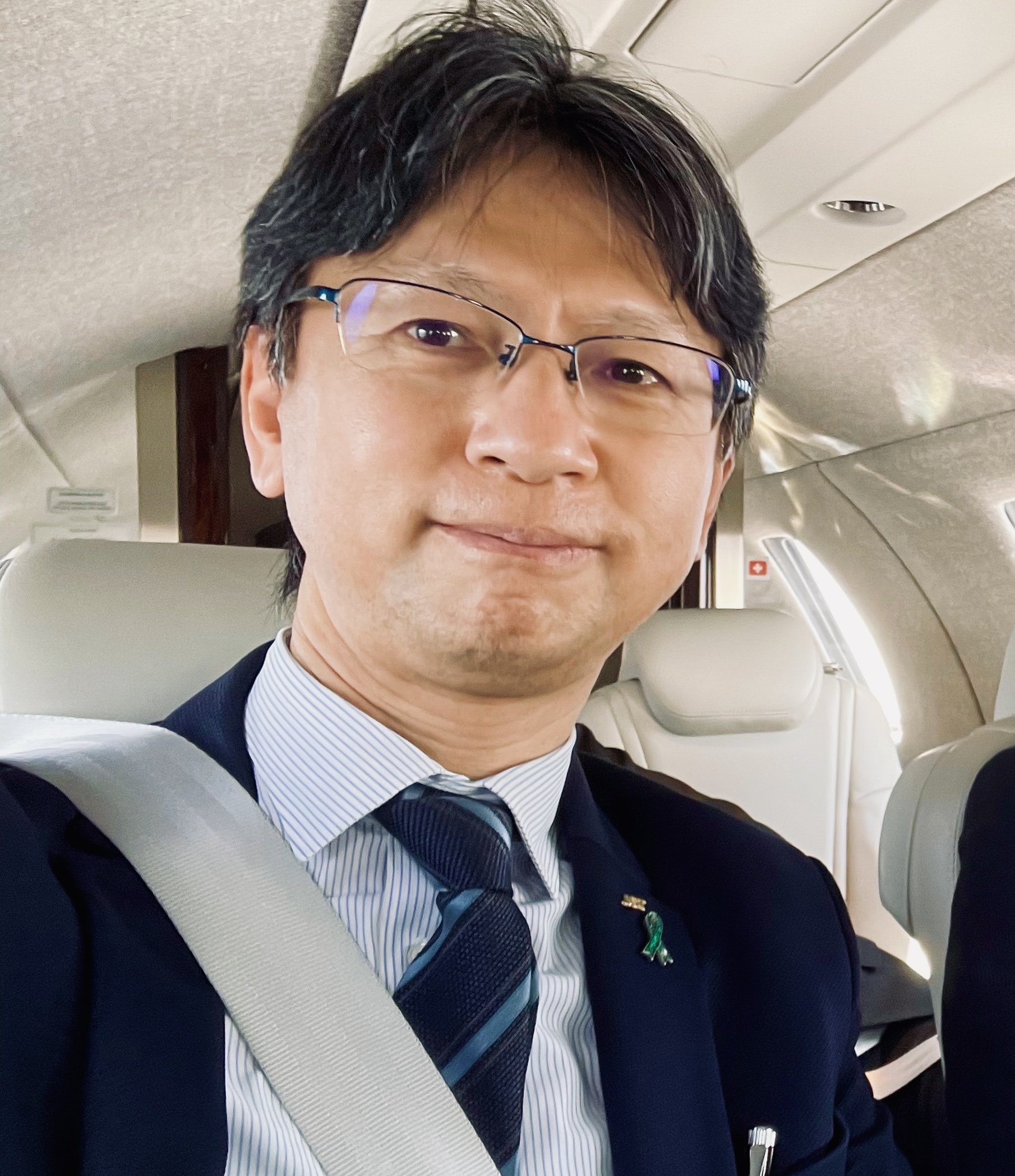
Juntaro Ashikari, MMSc is the Director of the Investigation and Research Division of the Japan Organ Transplant Network. Mr. Ashikari began his professional career as one of the pioneering procurement transplant coordinators at the Japan Organ Transplant Network in 1996 after graduating from the Masterʼs Degree Course in Medical Science of Osaka University Medical School.
Specializing in the field of organ donation and transplantation, Mr. Ashikari has extensive experience in a wide range of areas, including organ donation consent and family support, donor evaluation, extended criteria donors, donation after circulatory determination of death, organ utilization and allocation, transplant recipient registries, data management, and research in organ donation and transplantation.
Juntaro Ashikari is an active board member and contributor to multiple local medical societies and organizations. He also serves on the local organizing committee for the upcoming International Society for Organ Donation Professionals (ISODP) 2025 Kyoto Conference.
Mr. Ashikari has been granted many government-funded research projects, is a regular speaker at national and international organ and tissue procurement and transplantation conferences, and has authored or co-authored more than 50 scientific abstracts and papers in Japanese and English. Mr. Ashikari has co-edited and co-authored multiple Japanese textbooks for organ procurement coordinators and healthcare professionals, and also has statistically analyzed Japanʼs organ donation and transplantation data in the Japan Organ Transplant Network Organ Donation and Transplantation Databook.
Developing an original kidney donor risk index model in Japan: J-KDRI
Juntaro Ashikari1, Hitomi Sasaki Dr.2, Makiko N. Mieno Ms.3, Shinichi Nishi Dr.4.
1Division of Investigation and Research, Japan Organ Transplant Network, Tokyo, Japan; 2Fujita Health University, Toyoake, Japan; 3Jichi Medical University, Shimotsuke, Japan; 4Kobe University Graduate School of Medicine, Kobe, Japan
Introduction: The Kidney Donor Risk Index (KDRI) calculated by 10 donor characteristics (age, height, weight, ethnicity, history of hypertension, history of diabetes, cause of death, serum creatinine, hepatitis C virus status, donation after circulatory death status) is widely acknowledged for the evaluation of deceased donor kidney transplantation. Since Japan has unique donation and allocation characteristics, our goal was to develop an original index model for the evaluation of the suitability of deceased donor kidneys in Japan based on domestic donor and recipient data.
Method: Deceased donor data and recipient data from 2000 to 2016 was obtained from the database of the Japan Transplant Network (JOT) for this study, under approval of the JOT institutional review board. Transplants from donors under the age of two years and multi-organ transplants excluded from the cohort, finalizing a study population of 2665 kidney transplants (2148 DCD kidneys, 517 DBD kidneys). A Cox regression multivariate model was fitted to estimate the relative rate of graft failure independently associated with donor and transplant factors. Model discrimination was assessed using Kaplan-Meier graft survival curves by a categorized risk index compared by the log-rank test, and by Harrell’s C statistic.
Results: The developed risk index model, the Japanese Kidney Donor Risk Index (J-KDRI), included eight confounding factors: donation after circulatory death, donor age, hepatitis C virus antibody positive, estimated glomerular filtration rate at hospitalization, anuria, warm ischemic time, total ischemic time, and human leukocyte antigen mismatches. There was a decreasing trend in graft survival with an increasing risk index with a P value < 0.001. The C statistic was 0.622 (95% confidence interval 0.601-0.644).
Conclusion: An original index model, the J-KDRI, was developed for the evaluation of the suitability of deceased donor kidneys capturing the characteristics of Japan, providing a useful tool to assist decision-making in cadaveric kidney transplantation.
[1] Kidney Donor Risk Index
[2] donation after circulatory death